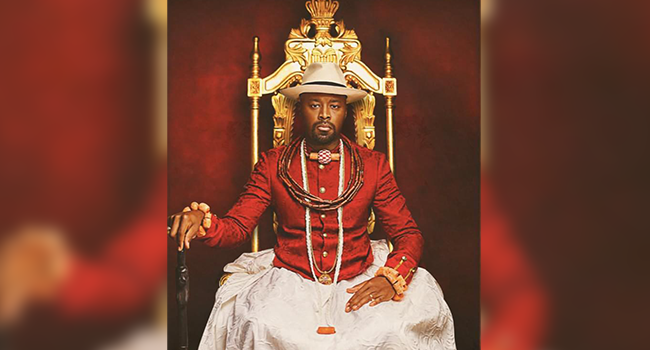By Femi Aribisala
Armed robbers broke into a man’s house. They cornered him in his bedroom. In desperation, he pleaded to be allowed to say his last prayer. His assailants were amused. They told him to go ahead but make it brief.
The man went down on his knees. “Father,” he cried silently, “I need you to deliver me. Don’t let me die like this.”
He had barely started the prayer when sirens were heard. The robbers panicked and made a dash for it, leaving behind everything they had gathered.
He later discovered there was a fire two buildings away from his house. The sirens came from the fire brigade on the way to the burning building.
But his deliverance was much more than he presumed. In the haste to make a quick get-away, one of the robbers dropped his wallet. Inside were 10,000 dollars in 100-dollar bills.
“That,” said the Lord, “is your disturbance allowance.”
Troublesome life
Nobody likes trouble. Nevertheless, it habitually confronts us. A man who rejects trouble is like a boxer in the ring who is upset when his opponent hits him.
Job says: “Man who is born of woman is of few days and full of trouble.” (Job 14:1). Eliphaz concurs: “Man is born to trouble as surely as sparks fly upward.” (Job 5:7).
Troublemaker God
In the scriptures, God claims responsibility for all the trouble that takes place in the world. He says: “I form the light and create darkness, I make peace and create calamity; I, the Lord, do all these things.” (Isaiah 45:7).
“Now ask the beasts, and they will teach you; and the birds of the air, and they will tell you; or speak to the earth, and it will teach you; and the fish of the sea will explain to you. Who among all these does not know that the hand of the Lord has done this, in whose hand is the life of every living thing, and the breath of all mankind?” (Job 12:7-10).
Amos says: “If a trumpet is blown in a city, will not the people be afraid? If there is calamity in a city, will not the Lord have done it?” (Amos 3:6).
Solomon counsels that trouble comes by God’s appointment: “In the day of prosperity be joyful, but in the day of adversity consider: surely God has appointed the one as well as the other, so that man can find out nothing that will come after him.” (Ecclesiastes 7:14).
Indeed, God was the architect of all the travails of Job. It was God who invited the devil into Job’s affairs by asking him: “Have you considered My servant Job, that there is none like him on the earth, a blameless and upright man, one who fears God and shuns evil?” (Job 1:8).
Thus, when Job’s wife told him to curse God for his troubles, Job rebuked her: “You speak as one of the foolish women speaks. Shall we indeed accept good from God, and shall we not accept adversity?” (Job 2:10).
Death of Lazarus
So, let us apply this understanding to what happened in Bethany.
“The Lord kills and makes alive; He brings down to the grave and brings up.” (1 Samuel 2:6).
Jesus caused Lazarus to fall sick. Then He killed him. When His disciples queried Him about Lazarus’ condition, He told them: “Our friend Lazarus sleeps, but I go that I may wake him up.” (John 11:11).
When they thought He was speaking of Lazarus having a nap, He said to them plainly: “Lazarus is dead. And I am glad.” (John 11:14-15).
What are we to make of this? When we get into trouble, the Lord is glad. When we are sick, He is glad. When we encounter difficulties, God is glad.
Moreover, He wants us to be glad as well. Jesus tells us to cheer up when we are beset by trouble. He says: “In the world you will have trouble. But cheer up! I have overcome the world.” (John 16:33).
Our afflictions do not upset the Lord; it is our lack of faith that upsets Him. The psalmist says: “Many are the afflictions of the righteous, but the Lord delivers him out of them all.” (Psalm 34:19).
The Lord is glad when we get into trouble because He is our deliverer. Our troubles merely provide avenues for the showcasing of His power of salvation.
Paul says: “No temptation has overtaken you except such as is common to man; but God is faithful, who will not allow you to be tempted beyond what you are able, but with the temptation will also make the way of escape, that you may be able to bear it.” (1 Corinthians 10:13).
God says He redeems from trouble: “That they may see and know, and consider and understand together, that the hand of the Lord has done this, and the Holy One of Israel has created it.” (Isaiah 41:20).
But without faith, there can be no deliverance. Without faith there is sin, for whatever is not from faith is sin. (Romans 14:23).
Alpha and Omega
Nothing happens except by God’s decree. God causes good and bad things to happen for His own purposes. Those purposes are so much higher than ours. (Isaiah 55:8-9).
When we understand what God is after, we will not be distressed or confounded in our afflictions We will stand in atonement with Him and say: “Father, Your will be done.” We will say this, recognising that: “All things work together for good to those who love God, to those who are the called according to His purpose.” (Romans 8:28).
Since God is the Alpha and the Omega, the Beginning and the End, (Revelation 22:13), then we must know that everything originates from Him and ends with Him. Since He is the End of all things, then the end of all things must be good, for God is good. (Matthew 19:17).
So, if school started last week and you still do not have your children’s school fees, just remember that Jesus raised Lazarus from the dead. If your rent is overdue and you still do not know how to pay for it, remember that Jesus raised Lazarus from the dead.
Put your hope in God. The hope placed in God never disappoints. (Romans 5:5). And so, the psalmist counsels himself: “Why are you downcast, O my soul? Why so disturbed within me? Put your hope in God, for I will yet praise Him, my Saviour and my God.” (Psalm 42:11).
Glory of God
When the disciples of Jesus saw a man blind from birth, they asked Him: “‘Rabbi, who sinned, this man or his parents, that he was born blind?’ ‘Neither this man nor his parents sinned,’ said Jesus, ‘but this happened so that the work of God might be displayed in his life.’” (John 9:2-3).
God says: “Call upon me in the day of trouble; I will deliver you, and you shall glorify me.” (Psalm 50:15). Therefore, whenever we get into trouble, we should expect to see the glory of God.
Jesus says to Martha on the death of Lazarus: “If you would believe you would see the glory of God.” (John 11:40).
She did.
CONTINUED


